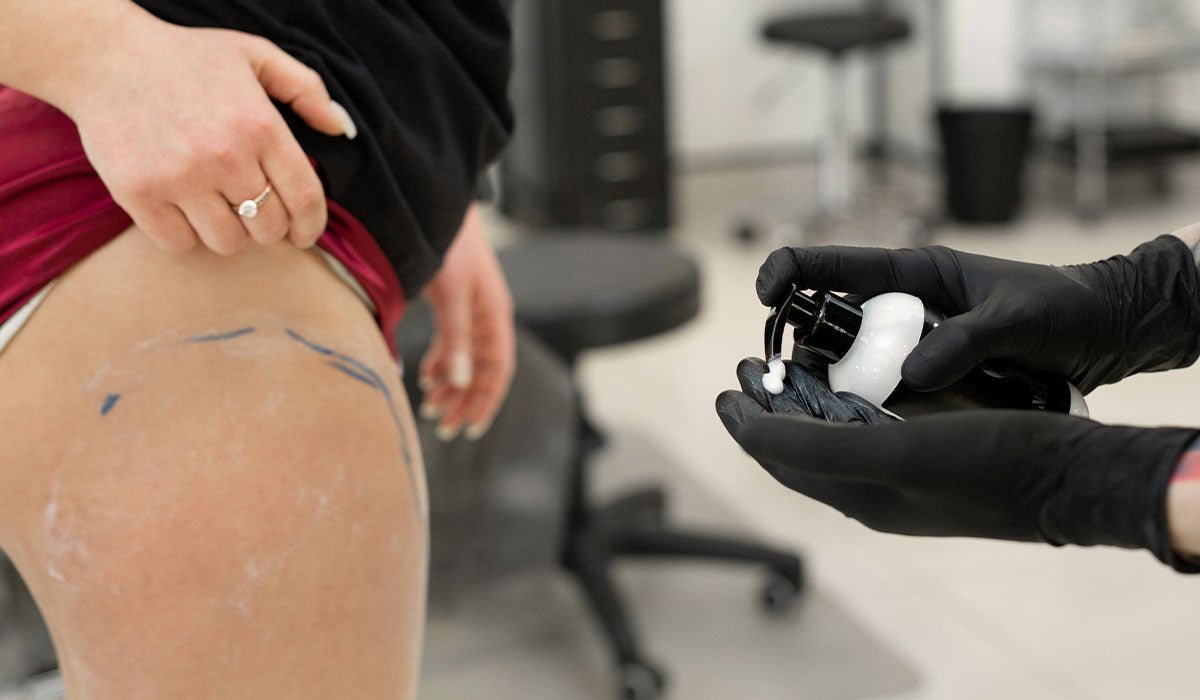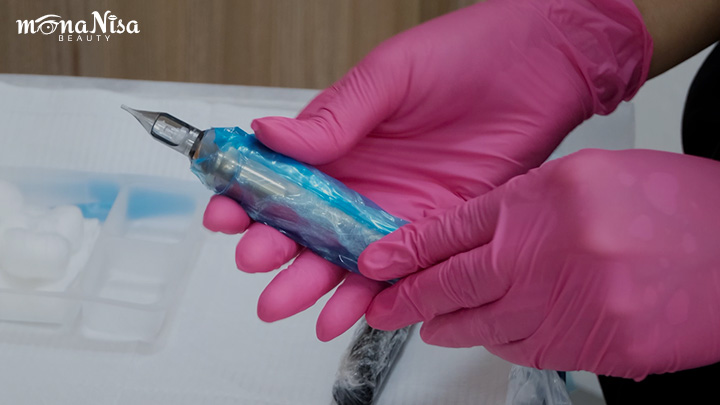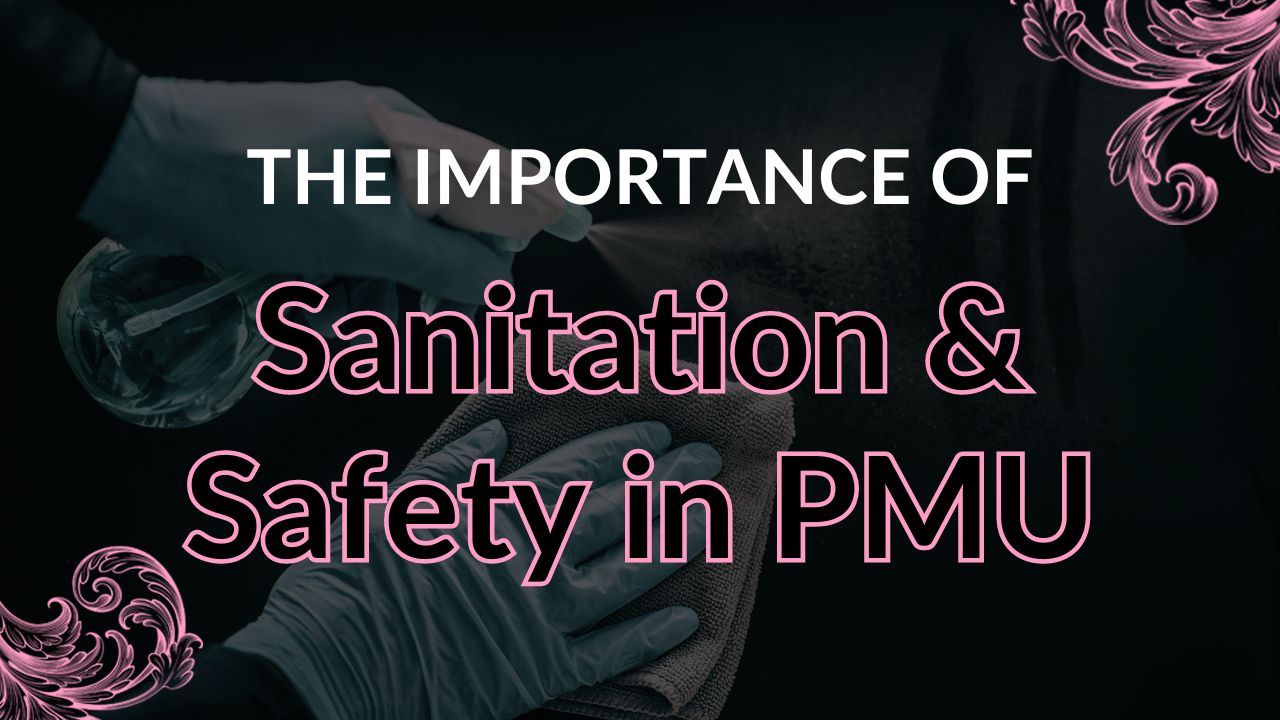Have you ever wondered about the meticulous steps that are taken in a PMU (Permanent Makeup) studio to ensure your health and safety during a procedure? Understanding infection control and hygiene in such a setting is vital not only for professionals working there but also for clients who want to feel safe and secure. You might feel hesitant about getting a cosmetic procedure without knowing these essential details, and that’s perfectly understandable. So, let’s unravel the mystery behind the curtains of cleanliness and safety practices in the PMU studio setting.

This image is property of cdn.shopify.com.
Understanding PMU and the Importance of Hygiene
You’ve probably heard of permanent makeup by now—eyebrows that don’t wash off, eyeliner that doesn’t smudge, lips that stay luscious morning to night. Sounds fabulous, doesn’t it? But beyond the magic it creates on your face, the practice involves procedures that can have implications if proper infection control isn’t maintained. A PMU studio, like Million Dollar Brows in Hampton Falls, NH, owned and operated by the seasoned expert Elizabeth Smith, takes these considerations seriously to assure you of an impeccable experience.
What is Permanent Makeup?
Permanent makeup is a cosmetic technique that uses tattooing methods to enhance facial features. It’s not just about aesthetics; it involves puncturing the skin, which carries risks if not performed under stringent hygiene standards. The process might sound simple—after all, it’s just a tattoo—but with the right professional knowledge, equipment, and skill, it becomes a transformative art.
The Critical Nature of Infection Control
The notion of infection control might invoke a spectrum of emotions, from mild curiosity to outright concern, especially when needles and skin inking are involved. It’s more than just a process; it’s a pillar of trust between you and the professional performing the treatment. The very thought of banks of bacteria lurking is what motivates industry professionals to adhere to strict cleanliness and infection control protocols.
The Role of the Professional in Ensuring Safety
It’s comforting to know that professionals like Elizabeth Smith have extensive experience and training to manage these safety concerns effectively. With over 13 years in the beauty industry and having performed over 1,000 procedures, she’s a testament to expertise and meticulous care. The comprehensive training she, and others like her, undergo includes not only the artistry of PMU but also the all-important category of ensuring client safety.
Training and Certification
In New Hampshire, where Elizabeth Smith is licensed and certified, the journey to becoming a PMU artist isn’t taken lightly. The law mandates all body artists to complete 1,500 hours of apprenticeship. This intensive training covers everything from mastering artistic techniques to understanding hygiene protocols, ensuring that a certified professional is highly equipped to offer both beauty and safety.
Commitment to Hygiene Practices
A professional’s commitment to maintaining hygienic standards is as critical as their skill with a PMU tool. It involves rigorous protocols like using sterile equipment, maintaining a clean environment, and comprehensively understanding every client’s health needs. Elizabeth Smith’s studio isn’t just known for its exceptional beauty transformations but also its unwavering adherence to these protocols, making you feel valued and safe.

This image is property of i.ytimg.com.
Key Infection Control Measures in a PMU Studio
When it comes to infection control, it’s about managing risks effectively. Ensuring hygiene involves a blend of practices, guidelines, and tools designed to protect both you and the professional. So, what are these mysterious protocols?
Sterilization and Disposable Equipment
One might say sterilization is to the PMU studio what seasoning is to a gourmet chef—crucial, transformative, and, quite frankly, non-negotiable. Using disposable needles, gloves, and other instruments ensures there’s no cross-contamination between clients. A skilled artist knows the importance of opening a pre-packaged, sterilized needle right in front of their client to demonstrate transparency and adherence to safety standards.
Maintaining Clean Environment
A clean environment in a PMU studio involves more than just neat piles of tools and supplies—it’s a continual process. This includes disinfecting surfaces between appointments, avoiding clutter that can harbor germs, and ensuring that waste is disposed of properly. The studio must resemble a sterile canvas, ready for your next beauty improvement session. This attention to detail creates a comfortable, assured atmosphere for clients.

This image is property of kajabi-storefronts-production.kajabi-cdn.com.
Communicating Hygiene Practices to Clients
Communication forms the backbone of trust, particularly when it comes to PMU treatments where the client’s health and appearance are at stake. Clear, open dialogue between you and your PMU artist about hygiene practices can ease nerves and build a reassuring bridge of trust.
Educating Clients
Educating clients on what to expect during their PMU journey is critical. From explaining the sterilization process to outlining aftercare procedures, knowledge empowers clients. Elizabeth Smith, with her depth of experience and commitment to client satisfaction, ensures that each person walking through her door feels informed and confident. Understanding these hygiene protocols can ease your mind and allow you to focus on the delightful outcome rather than worrying about the process.
Encouraging Feedback
Feedback is a treasured commodity in service industries, and PMU studios are no different. It’s not just about receiving compliments for a well-done procedure; it’s also about addressing any concerns you might have—whether it’s about hygiene practices or personal comfort during your visit. Encouraging you to share your thoughts, much like Elizabeth Smith does at Million Dollar Brows, paves the way for continuous improvement and assures clients their opinion truly matters.

This image is property of tattoounleashed.com.
The Role of You, the Client, in Infection Control
While the PMU professional plays a substantial role in maintaining hygiene, as a client, your actions and openness to follow aftercare guidelines significantly contribute to infection control.
Pre-Procedure Considerations
Understanding and adhering to the advice given by your PMU artist before your procedure is essential in creating a safe environment for yourself. For instance, sharing accurate information about your health history allows professionals like Elizabeth Smith to tailor their practices to suit your specific needs, ensuring you get the best and safest experience possible.
Post-Care Practices
The responsibility of maintaining hygiene doesn’t end when you leave the studio. Following aftercare instructions religiously aids in the healing process while reducing infection risk. Simply put, post-care practices are an extension of the studio’s hygiene measures right in the comfort of your home. Protect your freshly pigmented skin with recommended products, avoid activities that can introduce bacteria, like swimming or gym workouts, and commit to scheduled follow-ups for the best results.
Responsibility to Report Concerns
Keeping the communication lines open with your PMU artist after your procedure ensures any concerns are immediately addressed. Experiences vary, and should there be unusual discomfort or signs of infection, promptly contacting your artist ensures timely intervention and care adjustments. Professionals, like Elizabeth Smith, appreciate feedback to continuously enhance their services and maintain the aspect of personalized care.

This image is property of www.monanisabeauty.com.
Establishing Industry Standards for PMU Hygiene
Industry standards aren’t just sets of guidelines; they are assurances that every PMU artist can extend to their clients—commitments that underline safety and quality. PMU studios are regulated, ensuring hygiene practices align with the best standards possible.
Regulations and Licensing
PMU practitioners operate under specific regulations and obtain licenses demonstrating their capability to safely administer procedures. These licenses don’t merely serve as wall décor; they’re shredded in every appointment, symbolizing their competence. This regulation ensures that for your safety and peace of mind, artists must show their adherence to stringent safety practices such as the training undertaken by Elizabeth Smith in New Hampshire.
Advocating for Continuous Improvement
Continuous improvement in hygiene practices isn’t just beneficial; it’s vital for sustaining a credible industry reputation. Staying updated with emerging safety practices and innovations is a commitment that top PMU artists, like those at Million Dollar Brows, willingly undertake. This dedication ensures you receive the safest, most effective treatment possible and fosters trust between professionals and clients.
The journey towards achieving those perfect brows or lip color doesn’t have to be fraught with anxiety over safety. Knowledge is power, and understanding the infection control measures within your PMU studio enables you to relax, secure in the knowledge that you’re in good hands. Whether you’re looking to book your first appointment or already admiring your new look in the mirror, knowing the safety steps behind the scenes enriches your beauty experience.
If you’re in the New Hampshire area and looking for a proficient, caring, and thoroughly professional PMU experience, Million Dollar Brows offers not just transformative beauty but a reassuring and safe experience too. Intrigued or already a satisfied client? Share your thoughts and review your experience, contributing to Million Dollar Brows’ continued dedication to stellar service and safety.
To sum it up, infection control, professional diligence, and client awareness form the golden trio of a reputable PMU practice, making your journey not only beautiful but secure.




